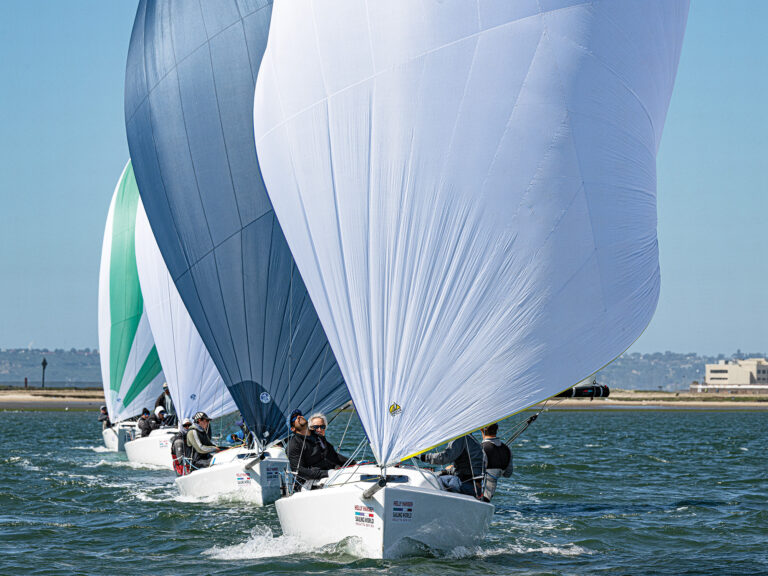It’s a common scenario: a group of folks get together, some traveling a considerable distance, to enjoy a weekend or more of good healthy competition and camaraderie. Whether contending with one another on the water or catching up on old times and life’s vicissitudes, there’s an air of collegiality and support. The skilled encourage and mentor the less skilled, knowing that the better the overall competition gets, the more fun it becomes for all. Information is shared and stories are told, and the racing is engaged in with the underlying precept that competition is fun, and winning is lots of fun. It’s this kind of spirit of friendliness and cooperation that goes far in promoting fleet development and participation, and it’s this spirit that I’ve had the pleasure of experiencing during the three years I’ve been actively racing on the non-professional level. Yet every once in a while, there’s an individual who stands apart from the rest. Winning appears to be the be-all and end-all of their involvement in the sport, on and off the course. Sportsmanship–defined as the conduct and attitude befitting participants in sports, especially fair play, courtesy, a striving spirit, and grace in losing–is tossed by the wayside. Intimidation, threats, and accusations of cheating are only some of the tools of their trade. He or she will contrive infractions or cite rules in a ruse to gain advantage or bluff the less knowledgeable into giving away a well-earned or perceived advantage. Yelling supplants civility, and antagonism is coupled with rabid aggression. In essence, this person sucks the oxygen out of the air, creating a suffocating and disinvigorating environment for everyone. This condition doesn’t go unrecognized nor unnoticed–the individual is the topic of derisive conversation, spoken of in contemptuous terms, and referenced by uncomplimentary epithets–and the condition of collegiality and friendship that normally prevails is tainted and sundered. Such behavior must invariably hinder fleet development and participation. These characteristics of selfishness and narcissism are often found in youth, and being so, can and perhaps should be a little tolerated or excused due to lack of maturity and experience. But when an adult exhibits such incivility, neither toleration or forgiveness are called for and can be even counter-productive. Unacceptably antagonistic and unsportsmanlike behavior must cease. The problem is that there’s no clear way for an individual or group of like-minded people to make the errant party aware of his or her transgressions and antisocial behavior without further alienating him or her and fostering an even greater contempt for the group. But in the interest of unity, the growth of fleets, and the health of the class, in one manner or another the disruptive person must be confronted and made succinctly aware of their effect on the individuals who comprise the group–and the group as a whole. Each circumstance is unique, and each situation will call for a different approach. Possibilities include having senior members of the fleet, or the fleet as a whole, attempt to talk with this person in an effort to make him or her aware how their behavior is hurting the fleet–and what the person needs to do to rectify the problem. Alternatively, a letter of reprimand or censure from the fleet membership, or the governing board of the class, can be sent to the same effect. Notwithstanding these efforts, should the individual fail to change and continue with their destructive demeanor, then ostracism and banishment may be all that’s left. This essay first appeared in the Lightning class newsletter, Flashes.









